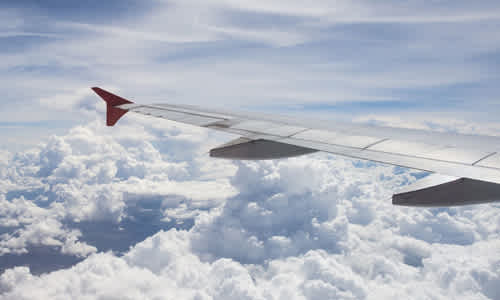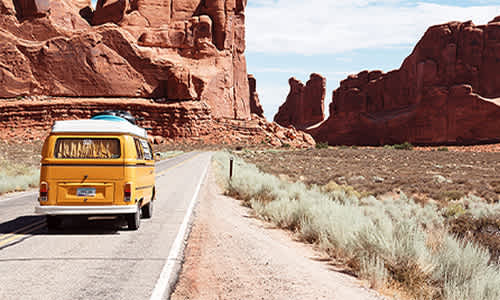What to consider when budgeting for travel

Regardless of the size of the group or family you're traveling with or the budget you've set for the trip. Some considerations when it comes to priorities are:
- Food
- Transport
- Accomodation
- Sightseeing & Tourism
- Length of Stay
Where Not To Cut Travel Costs
It may seem a bit counter-intuitive to start an article about travel budgeting to review where not to cut costs, yet it's an important baseline to set when budgeting and traveling.
If you're traveling somewhere that recommends any medications or vaccinations (e.g. the yellow fever vaccination or malaria pills) get the required and/or suggested medical treatments. The costs down the line of having to go to hospital far outweigh the costs of getting a vaccination or prescription. The WHO has a full list of vaccination requirements and there are a number of tools that will generate the recommended vaccinations and medications after you enter in where you're traveling to and when, like Travelvax.
Travel insurance should be a must as well. It can be tempting to cut the cost because you haven't run into anything yet on your travels...but generally it's not worth the risk.
Alongside insurance, there is safety. If at any point on your travels you feel unsafe - whether it's on a form of transport or at a location, do whatever you need to do to get out of that situation, if that means taking a cab instead of walking or taking the train rather than the bus, or moving your accommodation, do it. Your health and safety and the health and safety of those you're traveling with is paramount and shouldn't be compromised to save a few dollars.
Where & When
Your budget can drastically change depending on where you travel to and at what time of the year. The most expensive holiday destinations in 2018 are:
- Oslo, Norway
- London, England
- Ibiza, Spain
- Dublin, Ireland
- Zurich, Switzerland
- Los Angeles, USA
- Venice, Italy
- Amsterdam, the Netherlands
- Copenhagen, Denmark
- New York City, USA
New York tops out the list of most expensive cities at around $600 a day, including the cost of lodging. So if you're looking to go to a destination that is known to be expensive, your budget should either be bigger or more compromises may need to be made.
The time of year that you travel is also important, especially if you're traveling during:
- Christmas & New Year
- School holidays (yours or theirs)
- Summer (yours or theirs)
- Other holiday periods
In Australia when traveling in December, airfare prices increase by nearly a third - whereas May is the least expensive month to travel, according to Skyscanner.
While off-peak travel will nearly always be less expensive (traveling to a location in their winter or the rainy season), traveling in "shoulder" season is usually less expensive as well.
Find the right flight
Flights - especially from Australia - are often the largest cost you incur when you travel, so research, research, research!
And when booking international flights in advance, you'll probably want to book a bit earlier than you expect to - somewhere between 5 and 6 months in advance of your travels! Around 22 weeks is usually the sweet spot. And actually, Skyscanner found the timings for domestic flight savings are pretty much the same. The best bargains are usually 21 weeks ahead of your travel dates.
Beware the travel "gear"
Do you need that ultra-lightweight set of compression leggings for the flight, or a new leather passport holder, or a new eyemask, or a new set of luggage when you haven't used it since your last international trip? Probably not.
There's always the temptation to get shiny new things because we're excited about travel and having a fun new experience, when instead of buying new gear, that money could be put towards the actual experiences during the trip. If you're a visual person, it may be worth putting physical money in a decorated, dedicated trip jar or keeping track of the big experiences of the trip visually so you're not quite so tempted to spend on new things.
Know your bank charges & international fees
Bank charges and international transaction fees can be a lot more than you expect, depending on the institution you're with. Know ahead of time what those are - and if you have multiple bank accounts or cards that can be used overseas, know which one has the lowest rate.
Many banks will also have international partners where ATM fees will be waived if you get cash out of those ATMs. Knowing this ahead of time will help you save potentially hundreds of dollars in international transaction fees and ATM fees.
Remember the free things
There are going to be free things to experience in every location you go to. A lot of places will have:
- Free walking tours
- Public access beaches
- Public access national parks, heritage sites and monuments (sometimes for a small entrance fee)
- Free museums, or free museum days
- Public access sacred spaces (churches, mosques, temples, stupas, synagogues, cathedrals, etc)
- Depending on the time of year, free outdoor evening or weekend concerts
- Public markets
When you're planning your trip itinerary, take a look at the free options as well, rather than defaulting to the hop-on, hop-off buses, expensive entry theme parks and other paid tourist hotspots.
Consider slowing down
Slowing down and going to fewer places in the same amount of time, or alternately, the same amount of places in a longer amount of time, gives you a bit more flexibility around how you get in between locations. This means you won't have to spend lots of money on internal plane tickets because you only have 5 days left in your holiday, but instead can take a train and enjoy the view as you travel.
Traveling slower and spending more time in single locations also allows you to get to know the local spots better, and often will give you the time to find the good local restaurants that are more reasonably priced. And if you're staying at a place with a kitchen, you have the freedom to find the local grocery stores and markets and cook some meals at home.
Focus on what's important to you
When you're planning your holiday, always remind yourself what is important to you and build your trip around that. Regardless of how much you end up budgeting, if you do this, you'll enjoy your experience. And when you keep it in mind when you're planning, your budgeting will naturally gravitate to the things you've prioritised and your trip will be spectacular.
You may also like
News, tips and offers straight to your inbox.


